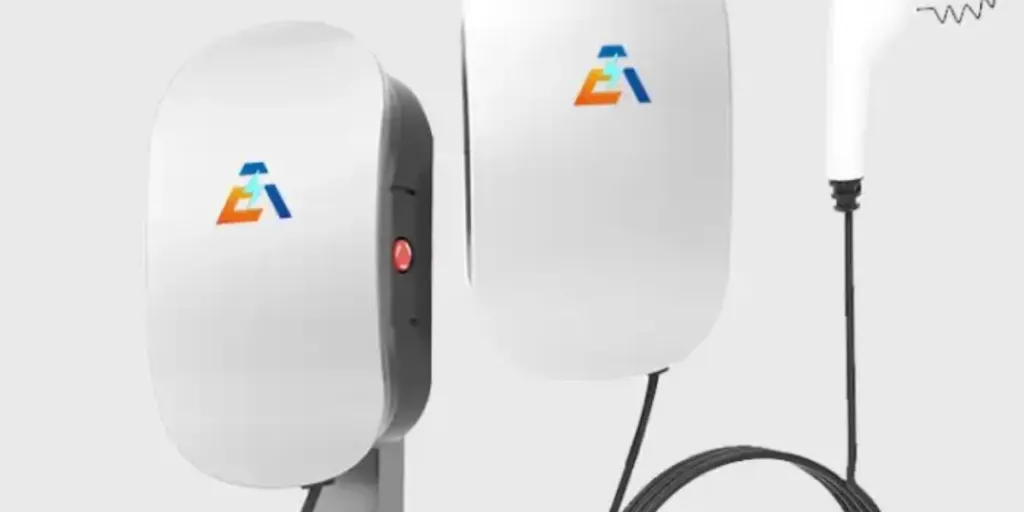Electric chargers will play a significant role in the journey toward society adopting green transport, especially electric vehicles, helping to deliver cost-effective power to EV batteries quickly and conveniently. But with the array of EV charger manufacturers already on the market, choosing the right variety for a specific consumer’s needs can be tricky. Therefore, retailers must weigh up a number of crucial factors in order to make an informed purchasing decision.
Here we’ll provide essential insights on what exactly to consider when buying the right EV charger, as well as an overview of the EV charger market.
Table of Contents
Benefits of EV chargers
Market share of EV charging stations
Types of EV chargers
Top tips to consider when buying the right EV charger
Summary
Benefits of EV chargers
- Environmental impact – EV chargers play a pivotal role in mitigating the environmental impact of transportation. Electric vehicles produce fewer greenhouse gas emissions compared to traditional vehicles, especially when charged with electricity from renewable sources. This reduction in emissions contributes to combating climate change and improving overall air quality, fostering a cleaner and more sustainable transportation system.
- Cost savings – The use of EV chargers offers significant cost advantages for both individual vehicle owners and businesses. Charging an electric vehicle is generally more cost-effective than fueling a traditional gas-powered vehicle, leading to potential long-term savings. In addition, the comparative simplicity of electric vehicle designs translates to lower maintenance costs over time, further contributing to economic benefits for EV owners.
- Convenience and accessibility – The deployment of EV chargers enhances the convenience and accessibility of electric vehicles. With the ability to charge at home using residential chargers, EV owners experience added convenience by eliminating the need for frequent visits to gas stations. The expanding network of public charging stations further ensures that electric vehicle users have convenient options for recharging while on the go.
- Government incentives – Governments around the world offer various incentives to encourage the adoption of electric vehicles and the installation of EV chargers. These incentives may include financial incentives, tax credits, or rebates for purchasing electric vehicles and supporting infrastructure.
- Technological advancements – The continuous evolution of EV charging technology contributes to the attractiveness and efficiency of electric vehicles. Ongoing innovations, such as fast charging capabilities and wireless charging options, enhance the overall charging experience. Technological advancements in EV chargers facilitate faster and more convenient charging.
Market share of EV charging stations
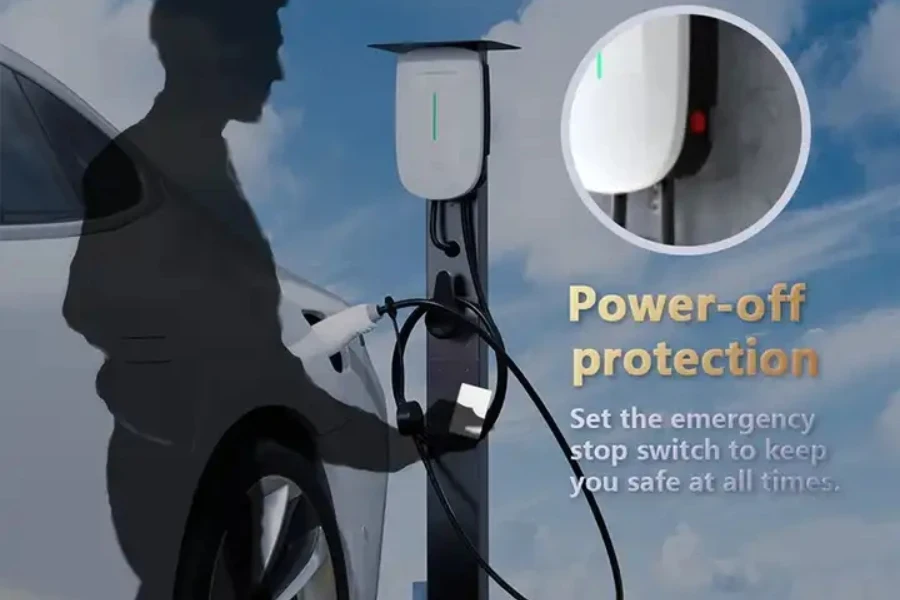
According to Market Reports, the global EV charging station market was worth USD 11.9 billion in 2022 and is expected to increase to USD 76.9 billion by 2027 at a significant CAGR of 45%. Factors leading to the high demand are the growing use of electric vehicles, the promotion of sustainability policies by governments, and an increased public understanding of environmental problems. The global need for EV chargers has increased as the world attempts to achieve stringent greenhouse gas emission reduction targets per country.
The main regions of this growth are North America, Europe, the Middle East, and Asia Pacific, wherein active investments in EV infrastructure and progressive legislation have meant significant charging station infrastructures are being built.
Types of EV chargers
1. Level 1 chargers
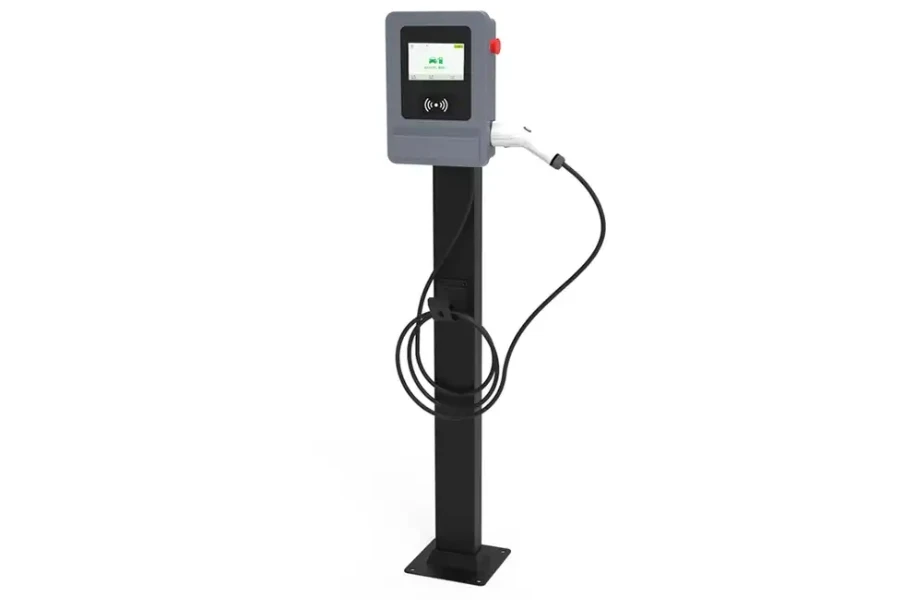
Level 1 chargers are the simplest and the most available EV chargers on the market. These chargers often require a standard wall socket of around 120 volts. Level 1 chargers are also affordable, ranging in price between USD 200-600. Popular electric vehicles compatible with level 1 charging include the Nissan Leaf, Chevrolet Bolt, and Tesla Model 3 via an adapter.
They take about eight to 12 hours to charge a vehicle fully and are ideal for night charging. Level 1 chargers are lightweight and very portable, enabling home use as well as in public via a normal extension socket.
Pros
- Level 1 chargers can be plugged into standard household outlets (120 volts), making them widely accessible and suitable for home use
- They are cost-effective to install and often come included with electric vehicles, requiring minimal additional infrastructure
- Level 1 chargers typically don’t require any special wiring, making them easy to set up in most residential environments
- These chargers are adequate for overnight charging, providing a full charge for many electric vehicles during extended periods of inactivity
Cons
- Level 1 chargers have a slower charging speed compared to higher-level chargers
- They are not sufficient for users with longer daily commutes or those who need frequent recharging
- Level 1 chargers are not well-suited for public spaces where quick turnaround times are essential, limiting their applicability in commercial or public charging settings
2. Level 2 chargers
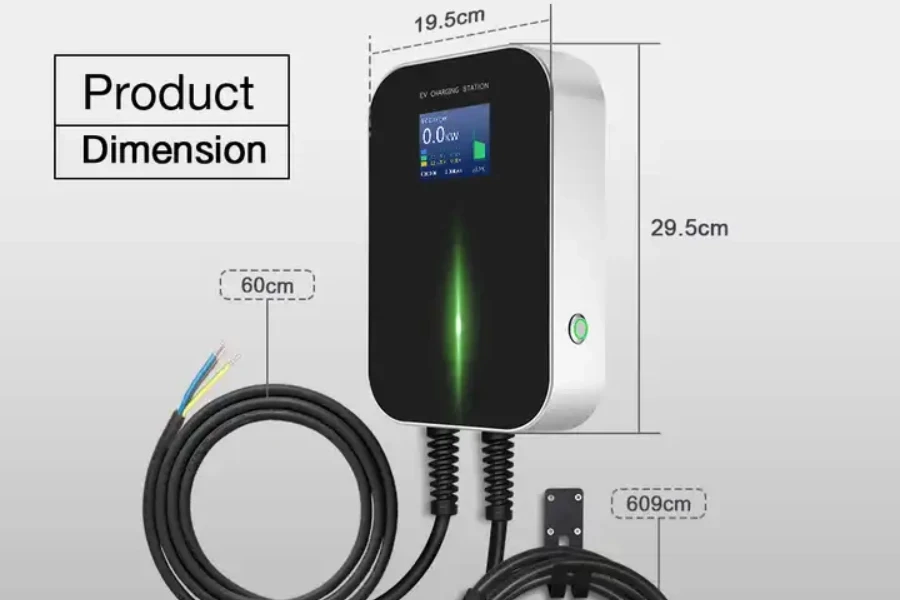
Level 2 chargers have a rated voltage of 240V, giving a quicker charge supply. These chargers take between four and eight hours to charge, and while not as mobile as level 1 chargers, they are easy to install at home, in the workplace, or in various public spaces. These chargers are universal and can be used with electric car models such as the BMW i3, Ford Mustang Mach-E, and Tesla Model S and X.
Pros
- Level 2 chargers offer faster charging times compared to level 1 chargers, making them more suitable for users with higher daily mileage
- They can be installed at home or in public spaces, providing a good balance between charging speed and convenience
- Level 2 chargers are compatible with a wide range of electric vehicles, offering a versatile charging solution for different makes and models
Cons
- The installation of level 2 chargers may require a dedicated circuit and, in some cases, professional electrical work, adding to the overall installation complexity
- While faster than level 1 chargers, level 2 chargers are still not as rapid as level 3 chargers, limiting their suitability for users requiring very quick charging
3. Level 3 chargers
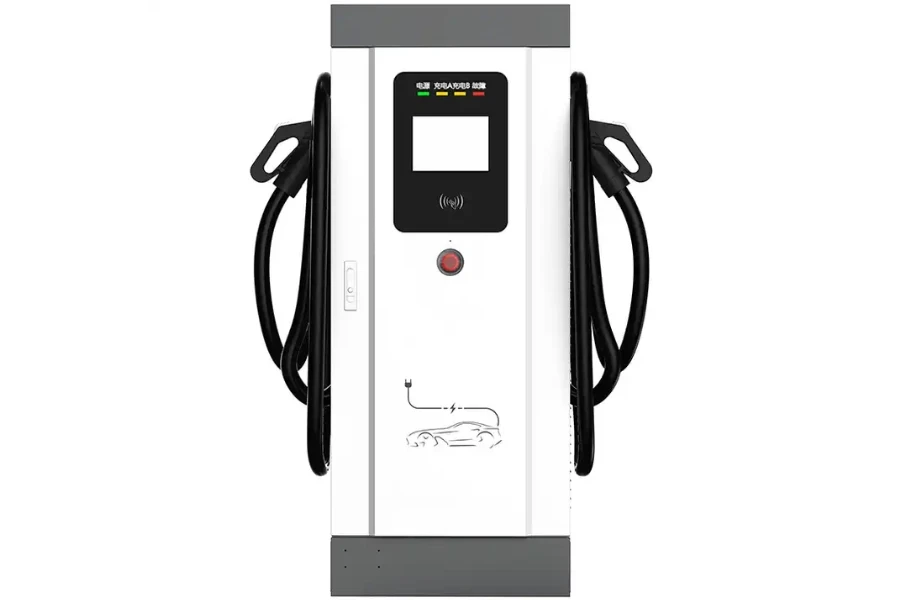
Level 3 chargers, also called direct current (DC) quick chargers, are much faster than level 1 and 2 chargers, making them ideal for charging EVs on the go. These chargers anywhere between USD 5,000-50,000. Vehicles such as Nissan Leaf Plus, Chevrolet Bolt, and Tesla Model 3 (some versions only) are compatible with level 3 chargers.
Level 3 chargers’ improved charging speed means that it only takes 30 minutes to an hour for an 80% charge, making them the top choice for stop-and-go charging. This also means that they are less portable, and installation is usually confined to highway and commercial charging stations.
Pros
- Level 3 chargers provide the fastest charging speed among the three levels, offering a significant amount of charge in a short period
- Level 3 charging stations are becoming more prevalent, especially along highways and in urban areas, providing better accessibility for users on the go
- DC fast chargers deliver high power output, making them ideal for users in a hurry or those needing quick charging during road trips
Cons
- Installing level 3 chargers is considerably more expensive than level 1 or level 2 chargers
- The infrastructure needed to support level 3 chargers is more complex, requiring specific components and considerations, leading to higher maintenance costs
- Not all electric vehicles are equipped to handle level 3 charging, limiting the accessibility of these chargers for some EV users
Top tips to consider when buying the right EV charger
1. Type
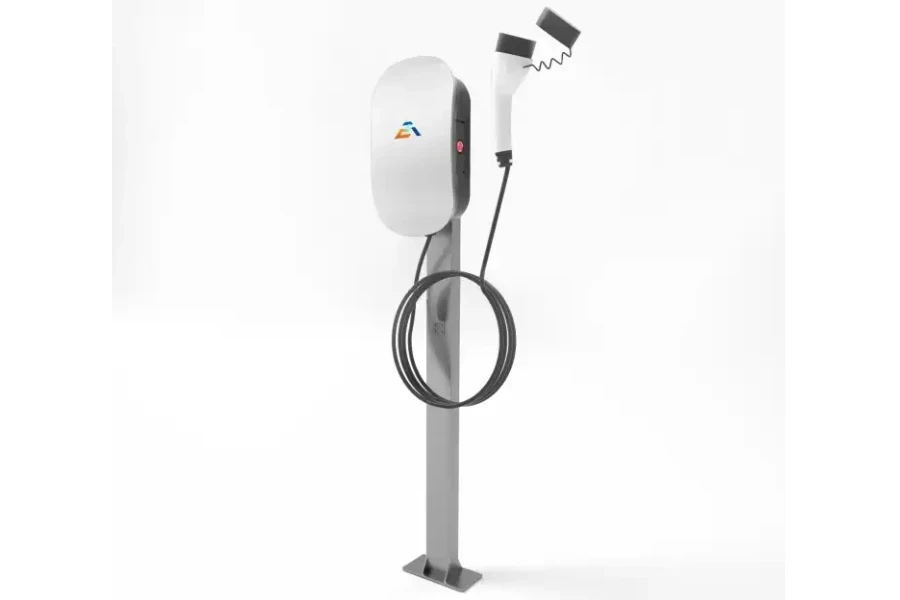
Determining what charging mode fits the user’s needs and how they correlate with specific electric vehicle requirements means that you must first assess various EV charger types for example:
- Level 1 chargers are the most basic level of charger available and convenient for home use
- Higher-speed level 2 chargers are suited to both private and public use
- Level 3 chargers are designed for high-speed charging while traveling long distances
2. Speed
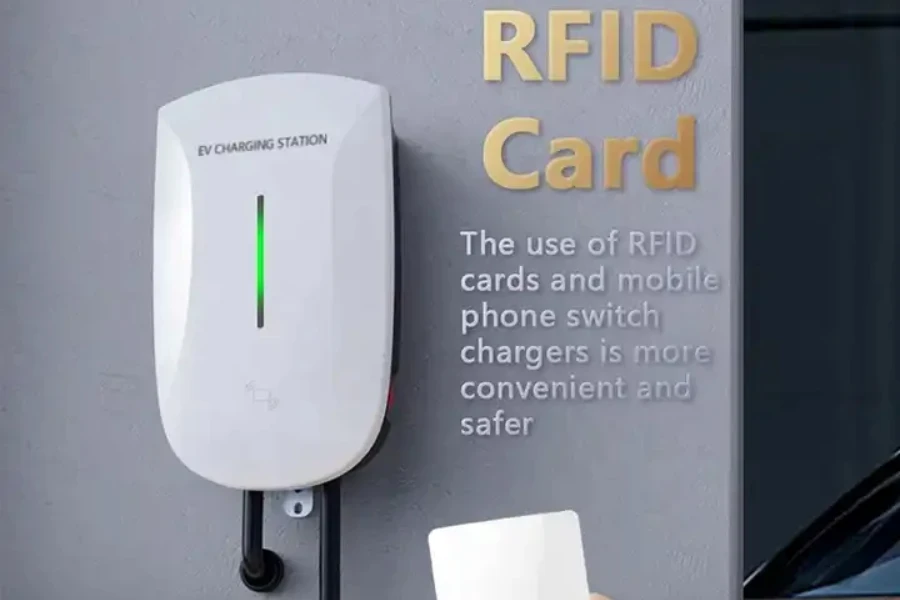
When choosing an EV charger, focus on everyday driving habits and buyers’ required charging speed. Keep in mind:
- Level 1 chargers offer about a 2-5 mile range per hour
- Level 2 chargers can add between 10-60 miles per hour
- Level 3 chargers can rapidly add 180 miles or so in 30 minutes
3. Price
The price of EV chargers differs depending on the type.
Level 1 chargers, priced between USD 200-600, stand out as a budget-friendly option. Ideal for home use and daily charging needs, level 1 chargers are suitable for individuals looking for a cost-effective solution without the need for rapid charging capabilities. The affordability of these chargers is primarily attributed to their lower charging capacity and standard charging speeds, making them suitable for users with modest charging requirements.
Level 2 chargers come priced at USD 400-1,200. This mid-range option is well-suited for users who require faster charging speeds, making them suitable for home installations and some public charging stations. The increased cost compared to level 1 chargers is justified by their enhanced charging efficiency, making them a practical choice for those who prioritize quicker charging without venturing into the high-end price category.
For those with more extensive charging needs, including the need for rapid charging, level 3 chargers, priced between USD 5,000-50,000, are likely the best solution. These chargers are designed for public charging stations, commercial use, or fleet applications, providing significantly faster charging speeds. Their higher cost is a reflection of the advanced technology, robust construction, and the ability to deliver rapid charging, making them suitable for businesses, municipalities, and high-traffic areas.
4. Portability
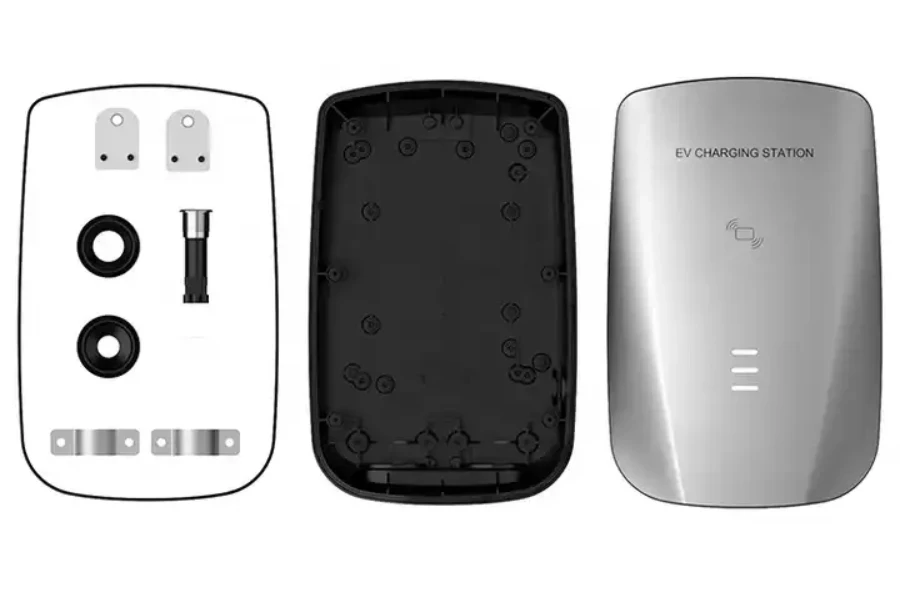
You must also keep portability in mind:
- Level 1 chargers are highly portable and can be used in standard household outlets
- Level 2 chargers are moderately portable and can usually be seen at home, workplace, or even in a public area with level 2 charging points
- Level 3 chargers are not portable, owing to their high power demands. These EV chargers are generally installed in fixed positions and charging stations.
5. Energy efficiency
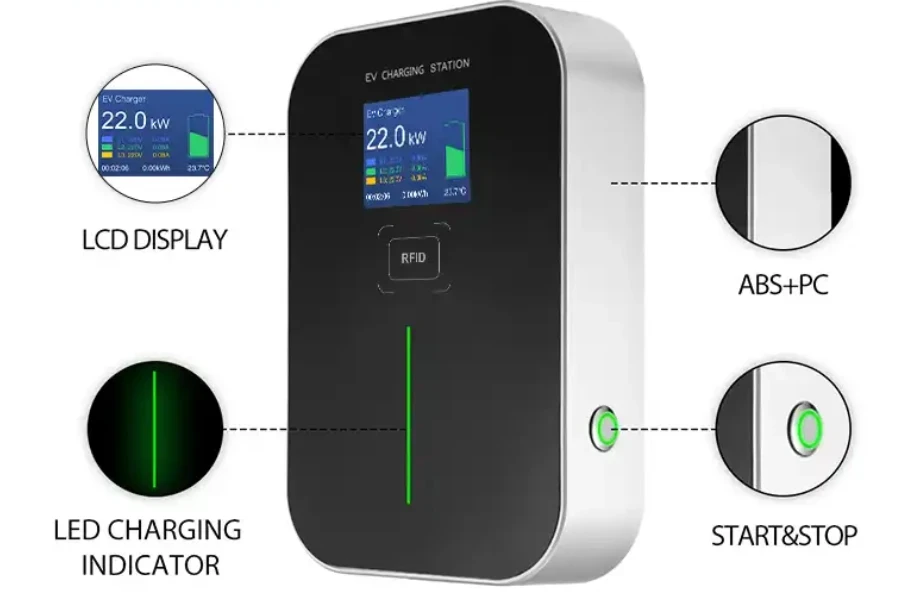
Modern EV chargers have smart capabilities and will charge when the cost of electricity dips. Using energy-efficient chargers is not only cost-effective but also reinforces sustainability goals, which are part of the eco-friendly nature of electric vehicles.
Level 1 chargers utilize a standard 120-volt AC power source, making them a basic option for electric vehicle owners. While convenient for residential use with standard household outlets, these chargers are known for their lower energy efficiency, resulting in relatively slower charging times compared to higher-level options.
Level 2 chargers operate with a more potent 240-volt AC power source, significantly improving energy efficiency and reducing charging times in comparison to level 1 chargers.
Level 3 chargers, or DC fast chargers, are designed for rapid charging using direct current (DC). These chargers prioritize quick charging, making them an efficient choice for users focused on minimizing charging times during longer journeys.
Summary
Choosing the appropriate EV charger is key for businesses supplying their consumers with what they need as well as making ownership of an electric car enjoyable and convenient. Factors like the type of charger, speed, price, transportable device, energy saver, and usability should be keenly considered.
With electric vehicle charging infrastructure evolving daily, you must stay up to date with technological innovations and current market trends. No matter your needs, you’ll be sure to find the right EV charger for you on Alibaba.com.
